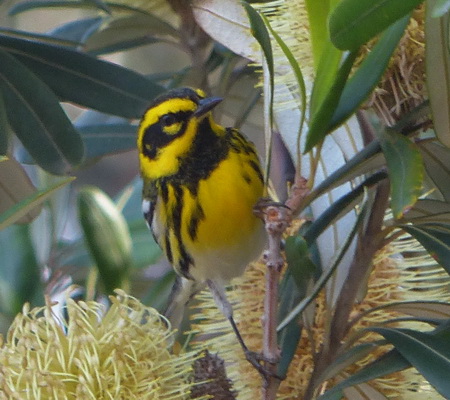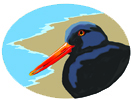
One of my thrills these winter mornings is catching a glimpse of the beautiful yellow face of a Townsend’s Warbler. The males have a striking facial pattern that is yellow with a black cap and throat and a black spot behind the eye. Their chest and sides are yellow with black streaks. They have two white wing bars and white under their tail. Females are similar but with a yellow throat and white belly.
Townsend’s Warblers are the West Coast cousin of the East Coast Black-throated Green Warbler. The Townsend’s Warblers nest from Oregon up to Alaska. It’s thought that the ones who winter here in North America breed farther north in B.C. and Alaska. They spend winters in mixed flocks with Chickadees and Nuthatches. The Townsend’s Warblers that spend their winters in the highlands of Mexico down to Costa Rica tend to stay in gregarious single species flocks feeding on fruit and nectar. It’s noted that the ones that winter here have longer wings and shorter bills.
Up north, May through June these 5-inch warblers feed at the tops of conifers like Spruces and Firs. They glean for insects such as beetles, flies, wasps and caterpillars. They make a shallow nest out on a fir branch and lay 3-5 white eggs with brown markings.
The Townsend’s Warbler is one example of the decline of our songbirds. One significant factor is the loss of their wintering grounds in tropical forests. The deforestation of tropical forests is due to increased human population pressure, the use of pesticides, and clearing for grazing land for cheap beef for our fast food restaurants and dog food.
For the Mendocino coast Audubon, I’m Pam Huntley wishing you happy birding.
Townsend's Warbler photo by Tim Bray
